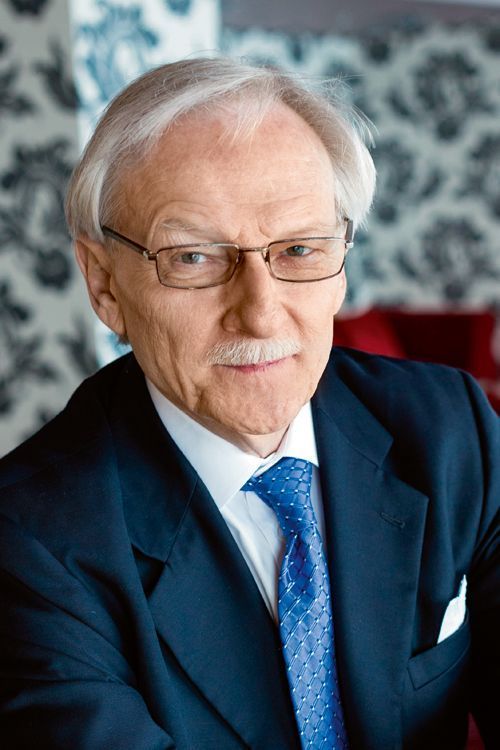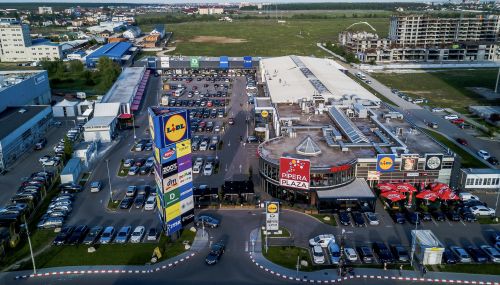A market for giants
Hotels
“The consolidation of two major hotel chains through the acquisition of Starwood Hotels & Resorts by Marriott International was only a matter of time,” says Alex Kloszewski, the managing partner of Hotel Professionals. The chain, as a result of this consolidation will open one hotel per every 14 hours over the next three years. Marriott, although it is now the biggest hotel chain in the world, has only 8 pct. of all the rooms in branded chains. “A deal like this results in significant dominance in terms of distribution volumes on a global basis, and puts all the other hotel chains on notice. This is going to make further consolidation a top priority for major companies to be able to compete on scale,” says Alex Kloszewski.
Accor made the first move by absorbing Fairmont, Raffles and Swissôtel (2015) and entered luxury hotels market. It was before dominated by US and Asian chians. Accor, the European leader, also took over the lifestyle brands Mama Shelter and 25 Hours Hotels. Analysts speculate that the InterContinental Hotels Group may soon start buying up smaller competitors. China’s HNA Hospitality Group completed its acquisition of Carlson Rezidor Hotel Group for around USD 2 bln just before the turn of the year. Louvre Hotels bought a hotel chain in India, Sarovar Hotels and was itself bought by Chinese chain Jin Jiang for around EUR 1.5 bln. Jin Jiang has also increased its share in Accor to 13 pct, while HNA purchased about a quarter of Hilton Worldwide’s shares for around USD 6.5 bln. There is still a consortium of Chinese companies under led by Anbang Insurance Group which remains hungry, having failed to acquire Starwood. It may want to buy more. “Consolidation in the hospitality sector is not something new but it has been gathering momentum over the last few years. Mergers of chains and hotel brands have many positive effects, for the company itself, the client and the entire industry,” claims Katarzyna Niezgoda, the director of business development at Vienna House. “At the smaller end of the scale, sub-10,000 room operators need to expand to break out of their geographies. Those at the higher end, such as groups like Hyatt and IHG, need to expand their market share or otherwise they could become the next major acquisition. In addition, it could be argued that consolidation has become a barrier to entry for new market players,” told us David Nath, the head of hospitality for Central & Eastern Europe at Cushman & Wakefield.
Local players join the fray
Accord has announced an asset light strategy and is to sell real estate worth EUR 6.5 bln, only maintainins the hotel management. Part of the sum can be spent on acquisitions, not only in the hotel sector. Orbis itself, which belongs to Accor, is also operating on its own. “Following the current trend, we are continuing to work on extending our chain through new projects, purchasing existing facilities and buying up those we lease, as well as continuing to improve our existing hotels,” says Ireneusz Węgłowski, the vice-president of the board of Orbis. “Our plan is to have extended our chain by 27 hotels in the region by 2020,” he adds.
Fighting it out with the OTAs
What is droinv this consolidation, according to market analysts, are internet platforms such as Airbnb and the online travel agents (OTAs). With their aggressive margins, OTAs are draining substantial amounts of money away from the chains, complain hotels. The consolidation is a response to this malady afflicting the big players. “Historic consolidations, such as Accor in 2015, have created global hospitality platforms, allowing operators to collate detailed data and as a result become better at individually tailoring for guests, with the aim of creating a loyal customer base. Prior to the consolidation trend, customers had to rely on a multitude of businesses for their hospitality needs. These days, with the wide coverage available to international chains, hotel operators can offer a one-stop-shop customer experience across the world, from Tokyo to Minsk. Also, these global platforms now have a better negotiating position with the OTAs, with improved commission rates and exposure, whereas the smaller chains can lose out in terms of marketing exposure and commissions to OTAs,” explains David Nath the head of hsopitality at Cushman & Wakefield. “Marriott International is now in the best position to lead the way in turning the tables, as the conglomerate is now well equipped to have the better hand,” says Alex Kloszewski of Hotel Professionals. Accor is going fiurther and wants to buy Travel Keys, which offers luxury holiday home rentals.
Not only agents are at fault
However, there may be other market forces driving the market towards consolidation. “This is a global trend in response to increasingly active agents, such as investment funds that create comprehensive conglomerates, form strategic alliances and buy the facilities of well established brands,” says Ireneusz Węgłowski, the vice-president of the board at Orbis. He also suggests that hotel chains have to react to increasingly higher levels of competition from services that rent apartments in attractive tourist locations, such as agents acting within the so-called ‘sharing economy’, even though he emphasises that this could be turned into an advantage as Orbis fighting this trend with its quality. Moreover, the larger the chain, the less direct competition on the market, so there is an opportunity to increase prices and strengthen your bargaining position when it comes to corporate agreements and suppliers.
Greater loyalty
Loyalty programmes also have a significant role to play. “A larger player can offer extended reservation platforms, the creation of which requires substantial financial resources. Such a tool also makes it possible for hoteliers to constantly monitor the quality of their services across the world, in each and every hotel of the chain, thanks to social media and travel portals, such as TripAdvisor,” explains Ireneusz Węglowski. However, Marriott cannot take such a positive response for granted from loyal clients in the case of their acquisition of Starwood. “What we do know, is that the existing clients of both chains at first feared losing their loyalty scheme benefits but have since breathed a sigh of relief after Marriott announced the linkage of both programmes. Sector specialists at first believed that Marriott would dispense with some of Starwood’s lesser known hotel brands – but for now and the near future at least, all the brands have survived the unification of both companies,” states Alex Kozlewski. “The consolidation of a few hotel brands under the same wing allows you to build stronger relationships with guests, who become loyal towards a company that offers various options, subject to their preferences. For the chain this means extending its portfolio without the need to invest in new hotels. On the other hand, it also has unquestionable value for travellers who can book a hotel of the brand they identify with anywhere in the world,” explains Katarzyna Niezgoda. “An increase in the market share of the biggest players may prompt independent hotel owners to change their business model by entering into a franchise agreement or a management agreement with a strong international brand, which could result in a further increase in the brand penetration on the hotel market in Poland and the CEE,” says Jakub Kleban, the national director, of the valuations department at JLL Poland.
Fewer or more brands?
“One consequence we are now seeing is the rationalisation of the multiple brands offered by these businesses, so perhaps we will see fewer brands in the future,” predicts David Nath. But Janusz Mitulski, the director of internati onal hotel development for CEE at Marriott International is of a different opinion: “Individualism has been making a more obvious mark on everything. Car producers, as well as fashion brands, are launching more and more models and more and more sub-brands to reach new social groups. Hotel chains will have to follow this trend,” says the director of Marriott. Hilton, which is introducing four or five new brands, including brand in the Middle East. Accor will open in 2018 its first Jo&Joe hotel that is to compete with budget hotels and youth hostels, vertical segmentation is set to take place. Each chain will want to have a brand in each segment. There will be no closures of hotels, even if there are two owned by the same chain on one street.
Technology in direct proportion
Market analysts say that consolidation will involve higher expenditure on modern technology. Everything is heading towards a more technological future. The larger the chain you are, the lower the relative cost. There may be more hotels, but there is one system, mobile app and loyalty programme. Most of the technology is the same for the entire company and there is one supplier. According to Katarzyna Niezgoda of Vienna House: “Consolidation also involves many difficulties. The integration of various systems, loyalty programmes, organisation and management cultures is a challenge that needs to be planned thoroughly; it requires consistency and determination, as it determines whether a company will be able to take advantage of the opportunities,” she says.
Price makes a difference
The consolidation will involve adapting the platforms to suit people from all continents that differ. And the most active are Far Eastern funds. Our properties are relatively cheap for them – and they are buying them not only in large acquisitions but also investing in individual facilities and local chains. And hotels are cheaper than investments in other sectors, like IT, chemicals, automotive. So why are Asians buying so many hotels in Europe? Well, they have started to travel. A decade ago only 1 mln Asians, only counting the Chinese, travelled abroad. Now it is 120 mln. By the end of this decade it could rise by a further 100 mln.
Nicer for MICE
“We are also seeing an obvious competitive advantage for Marriott’s newly enlarged hotel room platform for corporate global, MICE and international holiday travel companies. It can provide greater opportunities for servicing larger groups by having more exposure to most markets and most segments,” claims Alex Kloszewski. “There will be some advantages created by this merger of giants. We are already noticing that the other chains are starting to sharpen their fee structures – they are showing signs of giving new investors more generous terms during licensing negotiations and have even empowered a more flexible business approach to potential new owners. The remaining chains will also have to be more aggressive in driving up their hotel’s revenues and trading in order to keep investors happy and maintain their market share relevance,” he says.
“One thing’s for certain: potential new hotel real estate investors now only have five options for acquiring a true global brand: InterContinental Hotels Group, Hilton Worldwide, the Carlson Rezidor Hotel Group, AccorHotels, and, of course, Marriott,” says Alex Kloszewski. So the takeover revel can start to cool. “We expect that in the near future the process will somewhat cool down due to the projected slowdown in growth in some of the more mature markets and tightening policies related to foreign investment announced by the Chinese government. Therefore, takeovers will be visible more in a local dimension and on a smaller scale. For example in our region in the second half of the year it is expected that such an acquisition will be completed with Thai investor U City Public Company taking over eight hotels in which Warimpex has shares, together with the takeover of the management company that manages these hotel – Vienna International Hotel Management AG,” predicts Jakub Kleban of JLL Poland.





















































